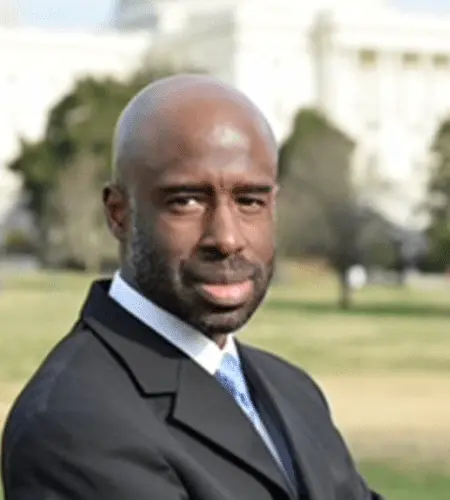Separation is always effortful. The Law Offices of SRIS P.C. can offer helpful insights into the pace of divorce procedures in New York State. How quickly can you get a divorce in New York? This comprehensive guide examines factors influencing the divorce timetable, the kinds of divorces, and strategies for moving the process without compromising your rights.
Types of Divorces in New York:
In New York, divorces can be categorized based on their duration to finalize them. The two main types of divorces in this regard are uncontested and contested. The time of each type can significantly vary, depending on the case’s complexity and both parties’ willingness to cooperate. Let’s explore each type in detail:
- Uncontested Divorce: An uncontested divorce is often the fastest way to dissolve a marriage in New York. It occurs when the spouses agree on all relevant issues, like child custody, asset distribution, spousal support, and other connected concerns. Since no significant disagreements exist, an uncontested divorce can proceed more quickly.
How quickly can you get a divorce in New York: Key features of an uncontested divorce:
- Amicable Agreement: In an undisputed divorce, the partners have reached a friendly agreement on all aspects of their divorce. It enables the procedure to advance smoothly and effectively.
- Simplified Court Proceedings: Uncontested divorces require fewer court appearances and interventions. Parties can often complete the process through paperwork and minimal interaction with the court.
- Shorter Waiting Period: New York State imposes a mandatory waiting period for all divorces—six months from when the filing spouse serves the divorce papers on the other spouse. However, in an uncontested divorce, this waiting period can be one of the shorter aspects of the process.
- Cost-Effectiveness: Uncontested divorces are more cost-effective than disputed divorces as they involve fewer court appearances and legal actions, resulting in lower expenses.
- Contested Divorce: In a contested divorce, the parties cannot agree on one or more crucial issues, like child custody, asset division, or alimony. Contested divorces are generally more time-consuming and complex, requiring litigation and court intervention to resolve disputes.
Key features of a contested divorce:
- Disputes and Legal Proceedings: In contested divorces, spouses cannot agree on certain aspects of their divorce, leading to legal battles in court. It often involves the representation of attorneys and multiple court appearances.
- Longer Duration: Contested divorces tend to take longer to finalize due to the need for negotiations and court hearings. The attorney may take the case to trial if they cannot resolve disputes through mediation or settlement discussions.
- Increased Costs: The longer duration and involvement of legal representation in contested divorces can lead to higher overall costs than uncontested divorces.
- Emotional Toll: The prolonged legal battles and disputes in contested divorces can take an emotional toll on both parties, especially if communication and cooperation between spouses break down.
The Mandatory waiting period:
The mandatory waiting period refers to the time between the divorce papers and the finalization of the divorce. Understanding the required waiting period is crucial for anyone seeking a divorce in New York. Let’s delve into the details:
- Duration of the Mandatory Waiting Period: In New York State, the mandatory waiting period is six months. The divorce papers are served on the defendant’s non-filing spouse, commencing this period from the service date. During these six months, the court allows time for both parties to contemplate reconciliation or negotiate and settle any outstanding issues before finalizing the divorce.
- Purpose of the Waiting Period: The mandated waiting period’s primary goal is to allow parties to reconcile. It will enable spouses to reconsider their decision to divorce and explore the possibility of resolving their differences or issues amicably. Giving couples time for reflection may help preserve marriages or lead to mutually agreed-upon settlements, potentially avoiding a lengthy and contentious divorce process.
- Exceptions to the Waiting Period: In specific circumstances, the judge may authorize an exemption to the obligatory delay period, permitting the separation to proceed more swiftly. One common exception is when one spouse can demonstrate a compelling reason for the need to expedite the process. The grounds for divorce may include domestic violence, abandonment, or severe financial hardship. The court, however, considers each request for an exception on an individual basis.
- Impact on Uncontested Divorces: The waiting period is a relatively straightforward part of the process for uncontested divorces, where both parties agree on all relevant issues. Since the divorce is uncontested, spouses are already in agreement, and they may use the waiting period to prepare any necessary paperwork or attend to other related matters.
- Impact on Contested Divorces: In contested divorces, where disputes exist over various issues such as child custody, division of assets, or alimony, the waiting period can serve as an opportunity for both parties to engage in settlement discussions. This time can be critical in resolving disagreements outside of court, potentially avoiding a lengthy and costly trial.
- Legal Proceedings During the Waiting Period: Legal proceedings can still occur while we cannot finalize the divorce until the mandatory waiting period has passed. For example, transient orders may be issued for juvenile custody, backing, or visitation, if needed, to guarantee that both sides and any underage sufficiently nurtured offspring throughout the separation proceedings. Connect with our experienced lawyer to discuss “How quickly can you get a divorce in New York and divorce in New York state cost”
Residency Requirements:
Residency requirements are crucial to filing for divorce in any state, including New York. These requirements determine whether you can initiate divorce proceedings within the state’s jurisdiction. Understanding New York’s residency requirements is essential for individuals seeking a divorce in the state. Let’s delve into the details of the residency requirements for divorce in New York:
- Establishing Residency in New York:
You or your spouse must be a resident of New York to petition for divorce there. There are two distinct scenarios for establishing residency:
- If you and your husband reside in New York, you can petition for divorce there, regardless of where you got married.
- One Spouse is a New York Resident: If only one spouse is a New York resident at the time of filing for divorce, there are specific additional requirements to fulfill:
- The grounds for divorce must have occurred in New York State while either spouse resided there. The grounds for divorce refer to the legally acceptable reasons for ending the marriage, such as cruelty, adultery, or abandonment.
- The non-resident spouse can only commence the divorce action after the New York resident spouse meets the residency requirement, which is one continuous year in New York.
- Demonstrating Continuous Residency:
For both scenarios mentioned above, establishing residency requires demonstrating continuous and uninterrupted residence in New York for the specified period. Continuous residence means you must have physically lived within the state’s borders for the entire residency requirement without any lengthy absences.
- The Role of Domicile:
In addition to continuous residence, it is essential to establish New York as your primary domicile. Domicile refers to your fixed, permanent, and principal place of residence. Evidence of your ties to New York can help establish your house.
Impact of Residency Requirements on Divorce Proceedings:
Meeting the residency requirements is a critical prerequisite for filing for divorce in New York. Please fulfill these requirements to avoid the court dismissing your divorce petition. Therefore, it is essential to consult with an experienced divorce attorney at The Law Offices of SRIS, P.C., to ensure that you meet all the necessary criteria before initiating the divorce process.
Exceptions to Residency Requirements:
In rare cases, New York courts may grant an exception to the residency requirements if there are compelling reasons to do so. For example, in situations involving domestic violence or other extreme circumstances, the court may waive the residency requirement to protect the safety and well-being of the individual seeking the divorce.
Several elements can determine the length of time it takes to complete a divorce in New York, such as the type of divorce, the difficulty of the case, the court’s schedule, and the desire of both parties to cooperate. While there is a mandatory waiting period in New York State, seeking experienced legal counsel from The Law Offices of SRIS, P.C., can help you navigate the divorce process efficiently and ensure your rights are protected.
In conclusion, the timeline for getting a divorce in New York can vary widely based on individual circumstances, whether the divorce is uncontested or contested, and other factors. An experienced divorce attorney can guide you through the process, helping to navigate legal complexities and achieve the most efficient resolution for your divorce. Remember that each divorce case is unique, and having the proper legal support can significantly impact the speed and outcome of your divorce proceedings. Talk to our experienced “How much does a divorce lawyer cost in New York”.
Frequently Asked Questions related to How quickly can you get a divorce in New York:
FAQ 1: What is the residency requirement for getting a divorce in New York?
Answer: Either spouse must meet one of the following residency requirements to petition for divorce in New York.
- Before filing for divorce, one spouse had been a resident of New York for at least a year after the pair were married there.
- Before filing, both partners must have been residents of New York for at least six months.
FAQ 2: What constitutes the reasons for divorce in New York?
Answer: New York offers both fault-based and no-fault grounds for divorce. One may seek a no-fault divorce by claiming the marriage has experienced an irretrievable breakdown for at least six months. Fault-based grounds include adultery, abandonment, cruel treatment, imprisonment, and living apart under a separation agreement.
FAQ 3: What is the waiting period for an uncontested divorce in New York?
Answer: In an uncontested divorce, where both spouses agree on all issues, New York requires a waiting period of 30 days after the process server serves the divorce papers on the defendant.
FAQ 4: How long does it take to finalize an uncontested divorce in New York?
Answer: An uncontested divorce can be completed relatively quickly, usually within a few months after the 30-day waiting period. The exact timeline depends on the court’s schedule and the efficiency of the legal process.
FAQ 5: What is the timeline for a contested divorce in New York?
Answer: A contested divorce can take considerably longer when spouses cannot agree on specific issues. Depending on the intricacy of the case, the court’s docket, and the parties willingness to negotiate, the length may range from a few months to more than a year.
FAQ 6: Can I expedite the divorce process in urgent situations?
Answer: In certain circumstances, such as domestic violence or urgent financial matters, you can request the court to accelerate the divorce process. However, the court evaluates each case on its own merits.
FAQ 7: What factors can cause delays in a divorce proceeding?
Answer: Several factors can contribute to delays in a divorce proceeding, such as:
- Disagreements over child custody, support, and visitation.
- The need for property valuations or business appraisals.
- Complications related to high net-worth divorces.
- Court backlog and scheduling conflicts.
FAQ 8: Can hiring an experienced divorce attorney speed up the process?
Answer: Engaging an experienced divorce attorney can help streamline the process by navigating the legal complexities, ensuring proper documentation, and providing timely advice. However, the timeline still depends on various factors specific to each case.
FAQ 9: Is there a way to predict precisely how long my divorce will take?
Answer: It is challenging to predict the exact duration of a divorce. While some cases may conclude relatively quickly, others can become protracted due to unforeseen circumstances or conflicts. It’s better to consult with a knowledgeable attorney to understand the potential timeline for your specific situation.









